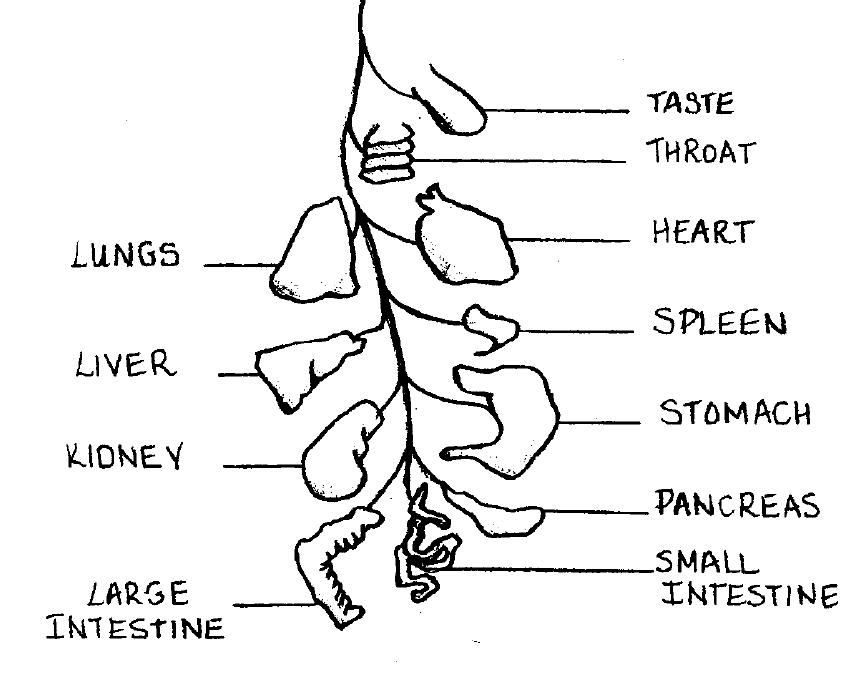
Imagine driving your car using only the gas pedal, never the brake? To slow down, you'd ease up on the gas or tinker with the fuel injection. To improve performance, you'd mix in additives to the fuel. On the occasions you do use the brake, you forget to ease up on the gas, so you are speeding up and trying to slow down at the same time. Sounds crazy-making and completely inefficient, doesn't it? Over time, we'd run down this car, destroy its machinery.
The sad fact is, that in modern life, we run our bodies much like this car. Our bodies have a hard-wired system for stress and speed, and an equally powerful built-in system for relaxation and quiet. Just like with our car analogy, appropriate use of the right system gets us to our next life destination faster, more efficiently, without burning out our bodies. Using your hard-wired calm system gets you to a state of optimal mental efficiency, gets you into your "zone." In my new book, A Calm Brain, I explore this system.
To Calm or Not to Calm, That Is the Question...
But many of us have forgotten how to access our calm system in the maddening daily rat race that is urban life. Our daily demands have made us override and forget about our natural relaxation system, so now we reach for the medicine cabinet instead when we want to unwind. How many of us know someone who uses both stimulant and sedative drugs, often on the same day, much like stepping on the gas and brake pedals at the same time? How does this affect our health? Not in a good way, surely. While there clearly is a role for the judicious use of medication, too many of us are using drugs for basic human functions like sleeping and relaxing.
What is your body's powerful brake pedal, your oft-overlooked and neglected system? An integral component of your braking system is your vagus nerve, a far-flung nerve that reaches nearly all the organs of your body. It slows down your breathing and your heart rate and modulates your voice. It has been called the "great wandering protector" for good reason. Tapping into the vagus helps us achieve both brain and body health, which is the right balance between relaxation and stress.
The Vagus Nerve
But how do we tap into the vagus and increase its activity? Meditation is one way, but some of us don't have time for meditation, and some of us are just no good at it. Our runaway brains keep us from focusing on just one thing, which is what meditation requires. Working meditation-type principles into our day by uni-tasking is a simple way to tap into the vagus. Uni-tasking is the antithesis of multitasking -- our daily effort to pack as much as possible into each sardine-can-minute of our day. Try just taking your dog out for a walk, leaving your cell phone at home. Try just savoring your dinner, without texting or checking your email at the same time. Sleep is another way to tap into the vagus. Touch is another. Give someone a hug or a smile and increase activity in your vagus. Turn off your cell phone for a quick vagal boost!
The neurology of this oft-overlooked nerve is fascinating. I always thought of the vagus as primarily a nerve that carried information from the brain to the body. I have since discovered that 90 percent of the fibers in this nerve do precisely the reverse, ferrying information from the body to the brain. Your vagus nerve is your local in-the-trenches news reporter on the "state of your body," carrying information instantaneously to your brain, a different circuit entirely from your spinal cord. And accessing and increasing the activity of this nerve is crucial for our health.
Other components of our biological system for calm include our evolutionarily older "core" brain, a key factor in how we feel. This "unconscious" system is far more powerful than our newer, rational brain -- our frontal lobes. This is why we sometimes feel inexplicably uneasy in a situation or "instinctively" dislike someone, a "gut" feeling, even if consciously and rationally, there seems to be no reason for the anxiety. In A Calm Brain, I discuss the exquisite biology of these systems and how to harness them for a healthier, drug-free and more productive life.
For more by Gayatri Devi, M.D., click here.
For more on the mind, click here.
